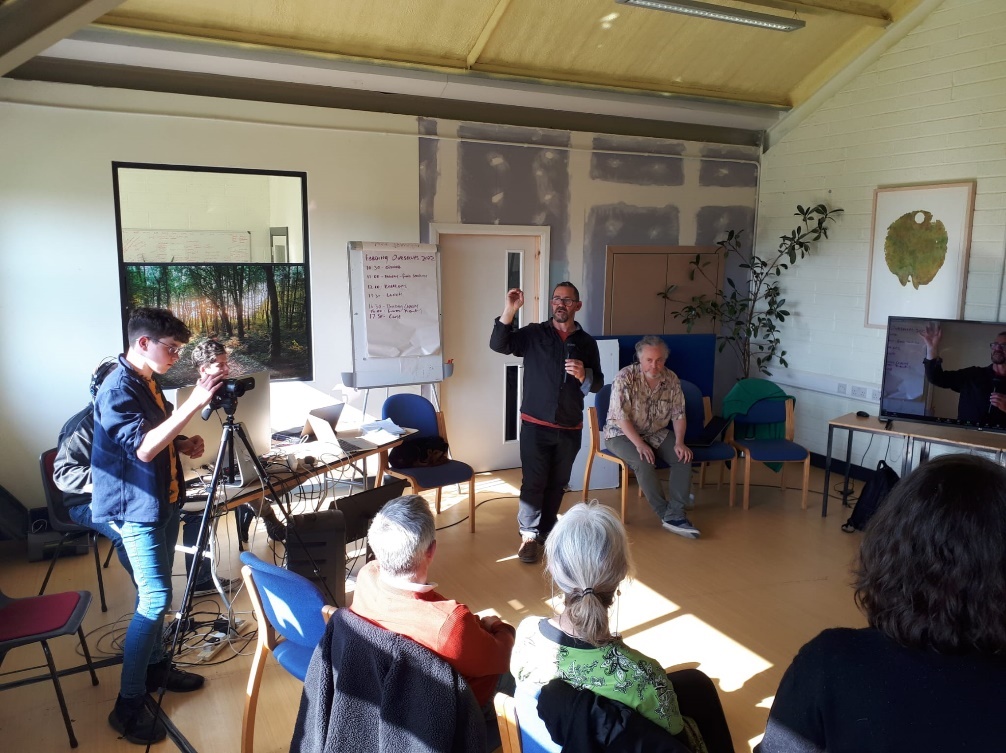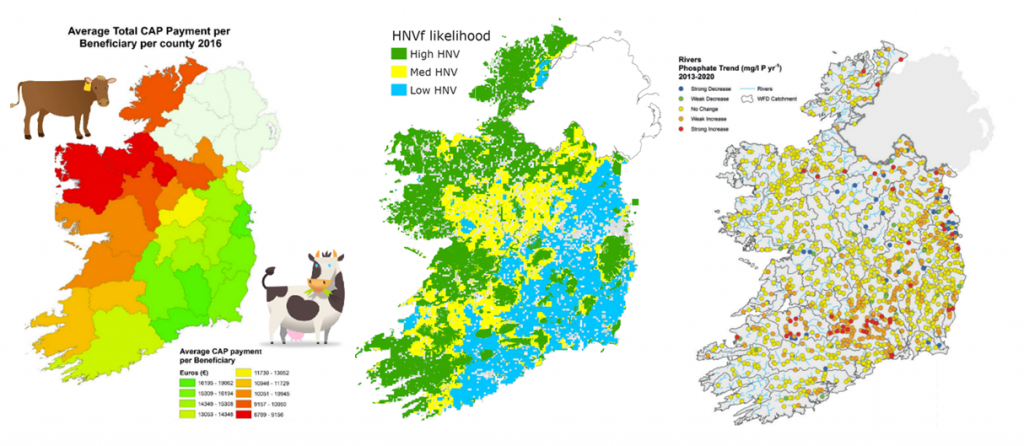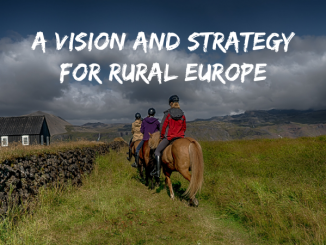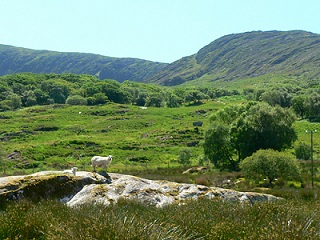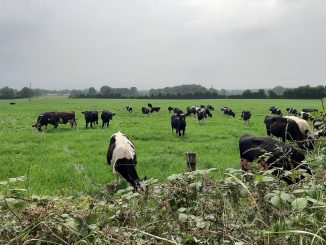Here we summarise the perspectives of wide range of actors from agriculture, energy, forestry and rural areas gathered to exchange views on the meaning and practical application of a just transition in a farming, food and rural context in Ireland. The event was built upon the report “Rural Ireland on the move: farm diversification and just transition”, supported by ARC2020 and UCC’s Centre for Co-operative studies. Held in the WeCreate Centre in Cloughjordan ecovillage, this just transition blended (online and in person) event saw dozens from a number of relevant parts of rural Ireland participate, with 30 on the call and 10 in the room. It was organised and delivered by Sustainable Projects Ireland – the Cloughjordan Ecovillage. With Matteo Metta and Oliver Moore.
Summary
Social inequalities emerge from and are embedded in a fossil fuel based economy, which channels farming and rural areas down particular paths of economic dependency and agricultural specialisation.
To make policies, public funds and practices on the ground more “just transition-proofed”, Ireland needs to embrace well-being and equity principles across its objectives. Support is needed for the emergence of adaptive, bottom-up, policy-community interfaces which effectively deliver change based on genuine social dialogue, on place-based skills and capacities, and on decentralised governance arrangements.
Rural Ireland on the move
This webinar was built upon the report Rural Ireland on the move: farm diversification and just transition. Amidst the compelling threats of climate change and social inequalities, the report is an attempt to collect reflections on how rural Ireland is moving towards just transition, who is setting the direction, who is being left behind, and what are the experiences on the ground to build a more inclusive or alternative path.
“While compiling this background report, a lot of things were changing fast”, explained Michelle Carey, author of report. The process of putting the report together involved reading reports, peer-reviewed papers, conducting interviews, and working with submissions from sixteen experts in the various fields.
We looked at common threads and included the perspectives of farmers and various rural actors to draw a picture of where we are at, why we are there, and what future prospects can be envisaged. However we also realised that much of the context within and around Ireland was rapidly changing, but simultaneously there was a doubling down on a business as usual approach.
Wars in Ukraine and its impacts, energy and food security concerns, renewed derogations allowing in Ireland to go above nitrates directive thresholds, and the observation letter from the European Commission to Ireland’s Department of Agriculture are among these contextual elements. The latter demanded corrective actions due to the lack of genuine environmental ambition, and pointed to real concerns on fairness and redistribution, in the Irish CAP plan 2023-2027.
When confronted with all these impacts, there is a real risk of carrying on with the same risky, intensive approach to farming and food that left the sectors so exposed in the first place. We recognised the importance of decision-making processes embracing a plurality of values and mindsets to avoid embedded, biased reactions and decisions.
To accomplish a just transition and diversified agriculture in Ireland, the planning of new targets or goals cannot start without reviewing the power structures that are framing societal problems and narrowing down the spectrum of possible actions.
Rural Ireland on the Move – new report on Just Transition and Diversification launched.
Accelerating Just Transition
The purpose of this open, two hours event with online and in person participants was threefold:
- To maintain momentum, despite new challenges, for a genuine just transition;
- To facilitate dialogue between different stakeholders and interests, and find common ground from individuals/groups with different perspectives;
- To give space for people to express and expose themselves to the diverse perspectives of a just transition.
Framing the opening to this event, Cloughjordan ecovillage resident Peadar Kirby (adjunct Professor of international politics at the University of Limerick) suggested that if just transition is to become the lens through which new policies are shaped and delivered, we must reflect on the definition of just transition and some of its key principles. These include using an evidence-based approach, skills development, fair distribution of the transition costs, and social dialogue.
“So far, the concept of the just transition in Ireland has mostly focused on the issue of closing down Bord na Móna bogs and re-skilling those workers affected by the transition towards a carbon neutral economy” notes Kirby. Are these principles very aspirational? Why are comfortable evidences included, and others neglected? What skills are really needed for the low-carbon transition and how are they learnt? How can we ensure that cost sharing does not exacerbate existing inequalities? What lessons can we learn from previous initiatives like LEADER and Social Partnership, when it comes to social dialogue, animation, and place-based approach?
Indeed, this point on exacerbating inequalities shows the limits, for Kirby, of what is in the Current Climate Action Plan. This plan is not so much about using the opportunity to genuinely improve society, but, more so, it is about not further worsening inequalities. This implicitly accepts these inequalities – we need to ask why, and if we think this is acceptable or not.
We cannot continue setting quantitative targets to achieve a climate neutral economy while saying little about the way our society should work: what type of relationships we want? How can we become less obsessed with material possession? How can we be less focused on what “we” want and more focused on what the biosystem and society needs?
Just transition is also a matter of time besides funds, programmes, infrastructures, and people. Oliver Moore, of the Centre for Co-operative Studies at UCC, notes: “While Ireland and the EU are projected to miss their own climate and environmental targets, every time the current agri-food system exposes its dependency on fossil fuel and heavily concentrated subsidy, it becomes an opportunity to postpone instead of triggering game changing or corrective actions, like the EU sustainable use of pesticide directive or nature restoration law”.
Similarly Caroline Whyte (of Feasta and steering group member of the Wellbeing Economy Hub for Ireland) argues that “if we want to make change on the ground, we need to look at the overall system and forces”. Economy is embedded in the environment and social structures. Price mechanisms alone are not enough. Regulations and their enforcement are important too. Broad sectorial measures are available to ease the pressure on the rural economy, such as universal basic income to every resident in Ireland, universal basic services to everyone (social housing from vacant houses), and a revision of labour taxation policies to stimulate enterprises to hire workers.
“The challenge with Just Transition is to ensure that communities are essential agents of change, not victims of change” (Laurence Fullam)
Laurence Fullam (Creative Rathangan Meitheal) raised a number of concerns on the process of just transition in the midlands, where he lives. The process has not been sufficiently inclusive or transparent – peatland communities have much to offer, and are losing much too, yet they do not have established pathways to power and decision-making. Just transition should also be about making the rich and wealthy strata of population bear the cost of climate change and of taking actions.
Figure 1: CAP direct payment distribution, high nature value farming and water quality indicators across Ireland.
Relatedly, Fintan Kelly (Agriculture and land use policy and advocacy officer at the Irish Environmental Network) gave an overview of the geographical and sectorial distribution of CAP direct payments across the country, and the negative correlation between the concentration of agricultural subsidies and environmental indicators. “Intensive farms must pull their weight for a just transition”, concludes Kelly.
Pointedly, Bridget Murphy (Farmer and project manager of Talamh Beo’s soil biodiversity, literacy and enhancement EIP) starkly stated “to change a fossil fuel-based economy, we need to make it obsolete”. Bridget referenced soil biology, genetic diversity, peer-to-peer farmer connections to re-gain control over agro-ecological knowledge. “When we talk about just transition, we have to realise that a high number of agro-ecological farmers have already been left behind. We need start working on the ground and show how can policy makers catch up with the transition”.
Finally, Dr. Olive McCarthy (Senior lecturer with the Department of Food Business and Development, and director of the Centre for Co-operative Studies, University College Cork) presented the results of research on energy efficiency access and low income households (funded by IRC New Foundations, Strand One). McCarthy’s research shows some of the significant factors hindering a just transition in the energy sector, namely:
- The lack of a community energy advisor and animator to help households mediating with the public authorities and enterprises, understanding the cost-benefits of the investments, providing one-to-one advice, and supporting potential beneficiaries to go through the grant application process.
- The ownership status of the home or its rental expenses over the total disposable income
- Grant aid: money often required up front
- Green loans: not suitable for those who are already overindebted or can’t/won’t take on more debt
- Eligibility and qualifying criteria might not be suitable and exclude the target group
Just transition in Ireland: so, what?
The event hosted a number of reflections to plan a better work on just transition, but also to improve the work to deliver any plans in this direction. Some key emergent elements form the discussion after the presentations included:
Financial incentives alone, or indeed, individualised opportunities such as free retrofitting, will not be enough. Ireland needs to build a more effective and comprehensive delivery system, including investments in IT systems and a dynamic network of community advisors and animators working at the policy-community interface. This holds for energy and for other areas, with the LEADER model being something of an example of how it can be done, though an enhanced iteration would be optimal.
The design of policy interventions or financial incentives need to be subject to a “reality check” and made more accessible to the conditions of the targeted group. How can we evaluate whether just transition is working for rural communities? Can we critically assess, learn lessons from, and build upon the model of just transition currently being applied to peatland communities in the Irish midlands, LEADER, or cooperation projects?
In many ways, just transition comes down to conversations between people. What is needed is need community and social dialogue support, not just funds. Many of the just transition changes require a dynamic, wide multi-faceted social movement and reconsideration of our values, aptitudes, consumption, and relations. The biggest challenge, but a nonetheless necessary step, is to scale up and nurture a just transition movement across sectors and communities. Little financial and human capacity or resources are currently dedicated to civil society organisations working in this area. This needs to change.
A positive element to both the report and event was how it brought together a range of perspectives and people – on the ground, in policy, in different sectors and with differing perspectives. While small, this represents one example of dialogue and engagement that can help progress a genuinely just transition.
This event was organised and delivered by Cloughjordan Ecovillage (Sustainable Projects Ireland). For more visit www.thevillage.ie. This short report on the event is by Matteo Metta of ARC2020. Oliver Moore helped with additional reporting. A PDF of this article is available at this link: Rural Ireland on Move_Just Transition_Webinar Report_SPI_28042022
More
Changes “required” to Ireland’s CAP Strategic Plan – European Commission
Rural Ireland on the Move – new report on Just Transition and Diversification launched.
CAP, Fairness and the Merits of a Unique Beneficiary Code – Matteo Metta on Ireland’s Draft Plan
Slashing Space for Nature? Ireland Backsliding on CAP basics

